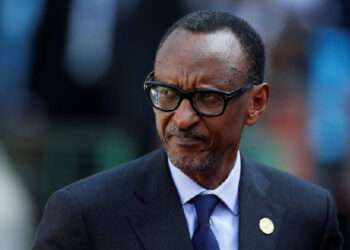Africa, often hailed as the continent of opportunity and potential, is home to some of the world’s fastest-growing economies and burgeoning industries.
In 2024, the International Monetary Fund (IMF) shed light on the economic prowess of Africa by releasing data on the continent’s richest nations based on GDP per capita adjusted for purchasing power parity (PPP). Beyond the numbers, this narrative unveils a story of resilience, innovation, and strategic vision driving economic prosperity across the continent.
At the helm of Africa’s economic prowess stands Mauritius, a small island nation with a big economic footprint. With a GDP-PPP per capita of $31,157, Mauritius exemplifies the power of diversification.
Beyond its traditional sectors like sugar and textiles, the country has embraced innovation, nurturing a diverse economy that thrives on tourism, financial services, and technology.
Libya, despite facing political and economic upheavals, maintains its position as one of Africa’s wealthiest nations with a GDP-PPP per capita of $26,527. Endowed with vast oil reserves, Libya’s journey towards economic stability serves as a proof to resilience and the importance of prudent economic management in harnessing natural resources for sustainable development.
Botswana, a shining example of effective governance and economic management, boasts a GDP-PPP per capita of $20,311. Leveraging its diamond resources and investing in sectors like tourism and agriculture, Botswana has transformed into a regional economic powerhouse, setting the stage for inclusive growth and prosperity.
Gabon, with its abundant natural resources including oil and minerals, stands tall with a GDP-PPP per capita of $19,865. Embracing sustainable development practices and economic diversification, Gabon’s journey towards prosperity highlights the significance of balancing resource extraction with long-term environmental and social considerations.
Beacon of Civilization and Innovation
Egypt, a beacon of civilization and innovation, secures its position among Africa’s wealthiest nations with a GDP-PPP per capita of $17,786. Diversifying its economy across sectors like tourism, agriculture, and manufacturing, Egypt navigates the complexities of a populous nation with a strategic vision for sustainable growth and development.
Equatorial Guinea, reliant on oil wealth, charts a course towards economic diversification with a GDP-PPP per capita of $17,237. Recognizing the need to reduce dependency on hydrocarbons, the country invests in sectors like agriculture and infrastructure, laying the foundation for a more resilient and inclusive economy.
South Africa, the continent’s economic powerhouse, grapples with socio-economic challenges while maintaining a GDP-PPP per capita of $16,625. Despite issues of inequality and unemployment, South Africa’s diverse economy remains a beacon of hope, driving regional growth and fostering innovation across industries.
Algeria, rich in hydrocarbons, embraces diversification with a GDP-PPP per capita of $14,227. Investments in renewable energy and manufacturing underscore Algeria’s commitment to sustainable development and economic resilience beyond oil dependency.
Tunisia, strategically positioned in North Africa, harnesses economic reforms and investments in tourism and manufacturing to secure its place among Africa’s wealthiest nations with a GDP-PPP per capita of $13,694. As Tunisia navigates the complexities of transitioning towards a knowledge-based economy, its resilience and innovation shine through.
Morocco, renowned for stability and strategic location, cements its status as a key player in the region with a GDP-PPP per capita of $10,926. Leveraging strengths in agriculture, tourism, and manufacturing, Morocco’s journey towards economic prosperity serves as a beacon of hope for the continent.
Beyond the numbers and rankings, Africa’s wealthiest nations exemplify the continent’s resilience, innovation, and potential. As these countries navigate challenges and seize opportunities, they pave the way for inclusive growth, sustainable development, and a brighter future for Africa as a whole.
READ ALSO: Farewell to Mr Ibu- Nollywood Mourns the Loss of the Veteran Actor





















